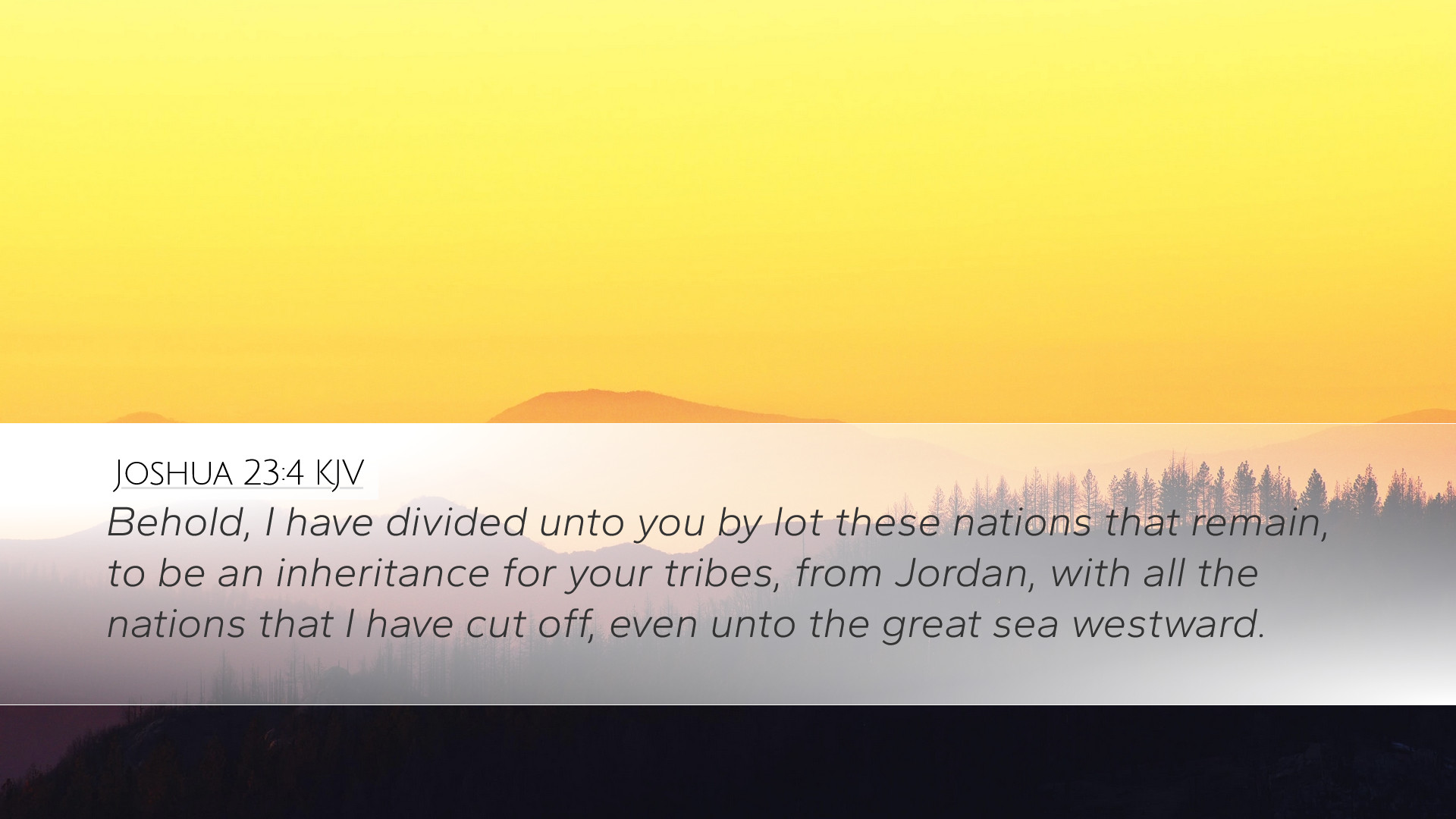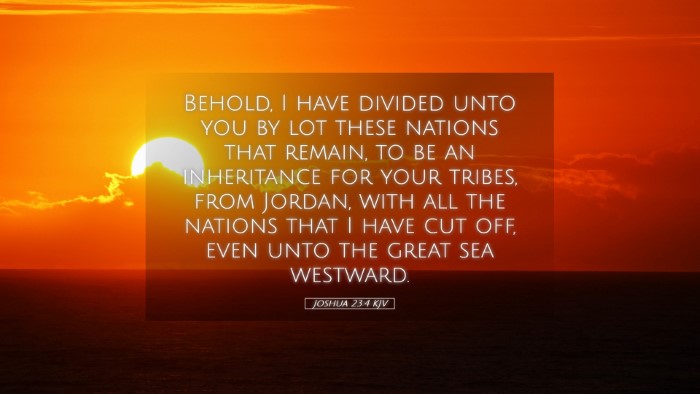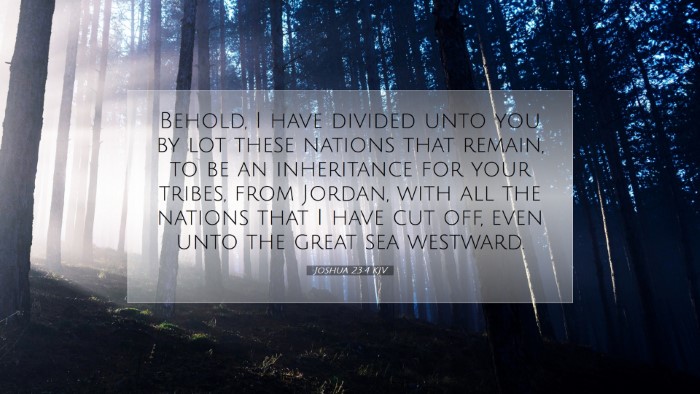Old Testament
Genesis Exodus Leviticus Numbers Deuteronomy Joshua Judges Ruth 1 Samuel 2 Samuel 1 Kings 2 Kings 1 Chronicles 2 Chronicles Ezra Nehemiah Esther Job Psalms Proverbs Ecclesiastes Song of Solomon Isaiah Jeremiah Lamentations Ezekiel Daniel Hosea Joel Amos Obadiah Jonah Micah Nahum Habakkuk Zephaniah Haggai Zechariah MalachiJoshua 23:4
Joshua 23:4 KJV
Behold, I have divided unto you by lot these nations that remain, to be an inheritance for your tribes, from Jordan, with all the nations that I have cut off, even unto the great sea westward.
Joshua 23:4 Bible Commentary
Bible Commentary on Joshua 23:4
Verse: "And, behold, I have divided unto you by lot these nations that remain, to be an inheritance for your tribes, from Jordan, with all the nations that I have cut off, even unto the great sea westward."
Introduction
This passage highlights a crucial moment in Israel's history, where Joshua, the leader after Moses, addresses the people concerning their inheritance. This theme of inheritance resonates deeply throughout Scripture and encapsulates significant theological concepts such as God's providence, faithfulness, and the fulfillment of His promises. The insights from various public domain commentaries—Matthew Henry, Albert Barnes, and Adam Clarke—offer depth to our understanding of this verse.
Theological Significance
God’s Sovereignty in Inheritance
Matthew Henry emphasizes the divine allocation, pointing out that the lands designated to the tribes were not merely a matter of chance but rather a direct act of God's sovereignty. He notes that God, in His wisdom, directed the lot, ensuring that each tribe received an appropriate inheritance relative to their size and strength. This act serves to remind believers that God's plans are intentional and purposeful.
Fulfillment of Promise
Albert Barnes highlights the fulfillment of God’s promises made to the patriarchs. The lot divided among the tribes is a direct manifestation of God's fidelity. In his commentary, Barnes suggests that the inheritance signifies much more than physical lands; it represents the fulfillment of God’s covenant with Israel, affirming their identity as God’s chosen people given lands flowing with milk and honey.
Historical Context
The Period of Transition
Adam Clarke places this passage within the historical context of Israel's transition from wanderers to possessors of the land. The significance of the distribution of land illustrates a completed task of conquering the Promised Land, marking a pivotal shift in their national existence. Clarke notes that this distribution is intended as a means to secure peace and order among the tribes now settled in their respective territories.
Practical Applications
- Understanding Divine Heritage: Just as God allotted the inheritance to Israel, believers today must recognize their heritage in Christ. Paul reminds believers in Ephesians 1:11 that they have an inheritance through God’s purpose, showing that God desires to give us a place in His kingdom.
- Encouragement in Faith: The assurance that God is sovereign and faithful offers a great comfort, encouraging us during times of uncertainty. Pastors can remind their congregations of the importance of trusting in God's provision and timing, as He continues to unfold His plans for us.
Conclusion
Joshua 23:4 serves not only as a historical account of land distribution but also encapsulates deep theological truths about God’s sovereign will, His faithfulness to His promises, and the importance of our inheritance as children of God. The insights provided by Henry, Barnes, and Clarke enhance our understanding and acceptance of these truths. As we reflect upon this verse, may we as pastors, students, and scholars continue to seek a deeper relationship with God, recognizing the significance of our divinely appointed inheritance.


